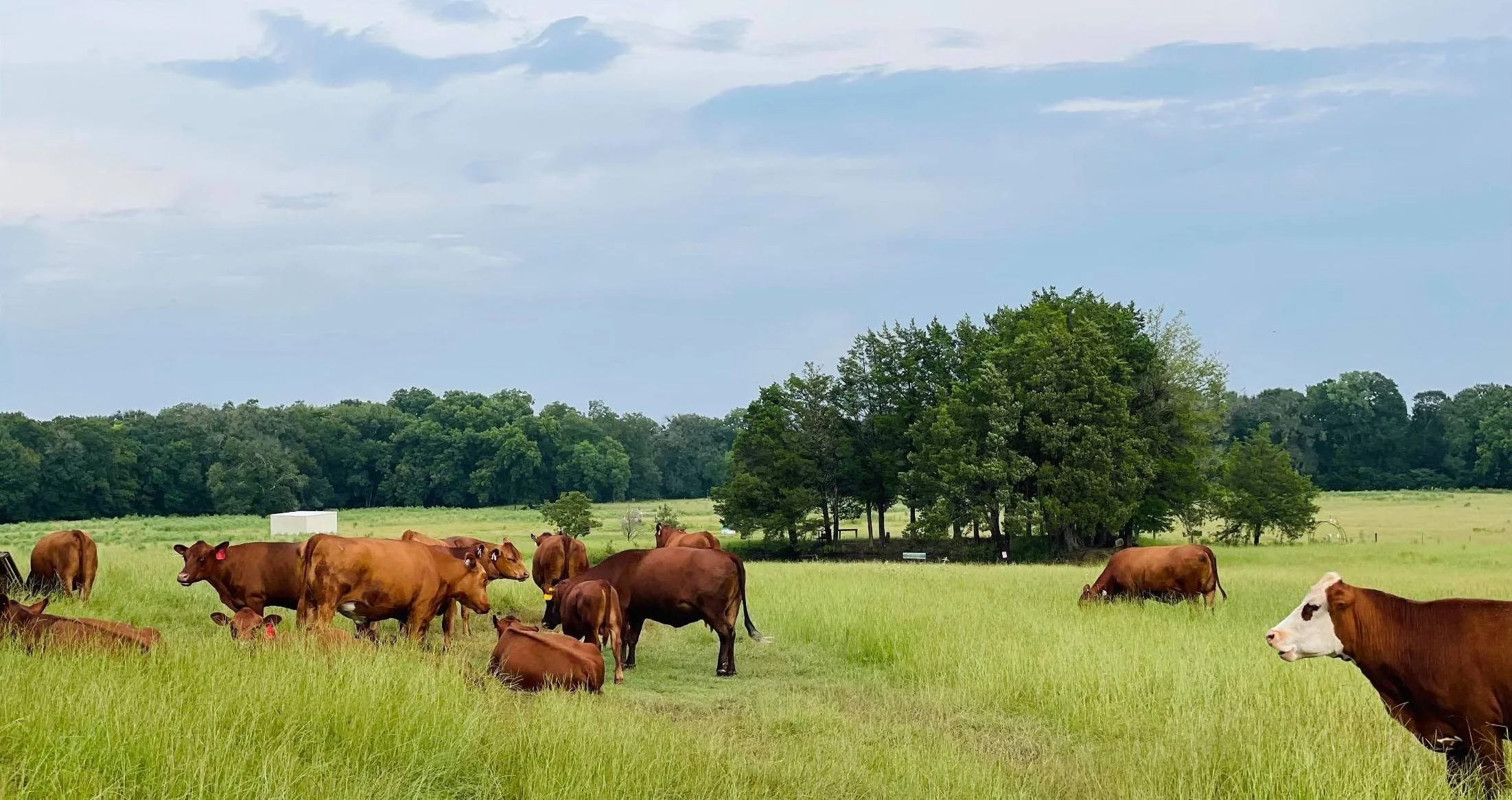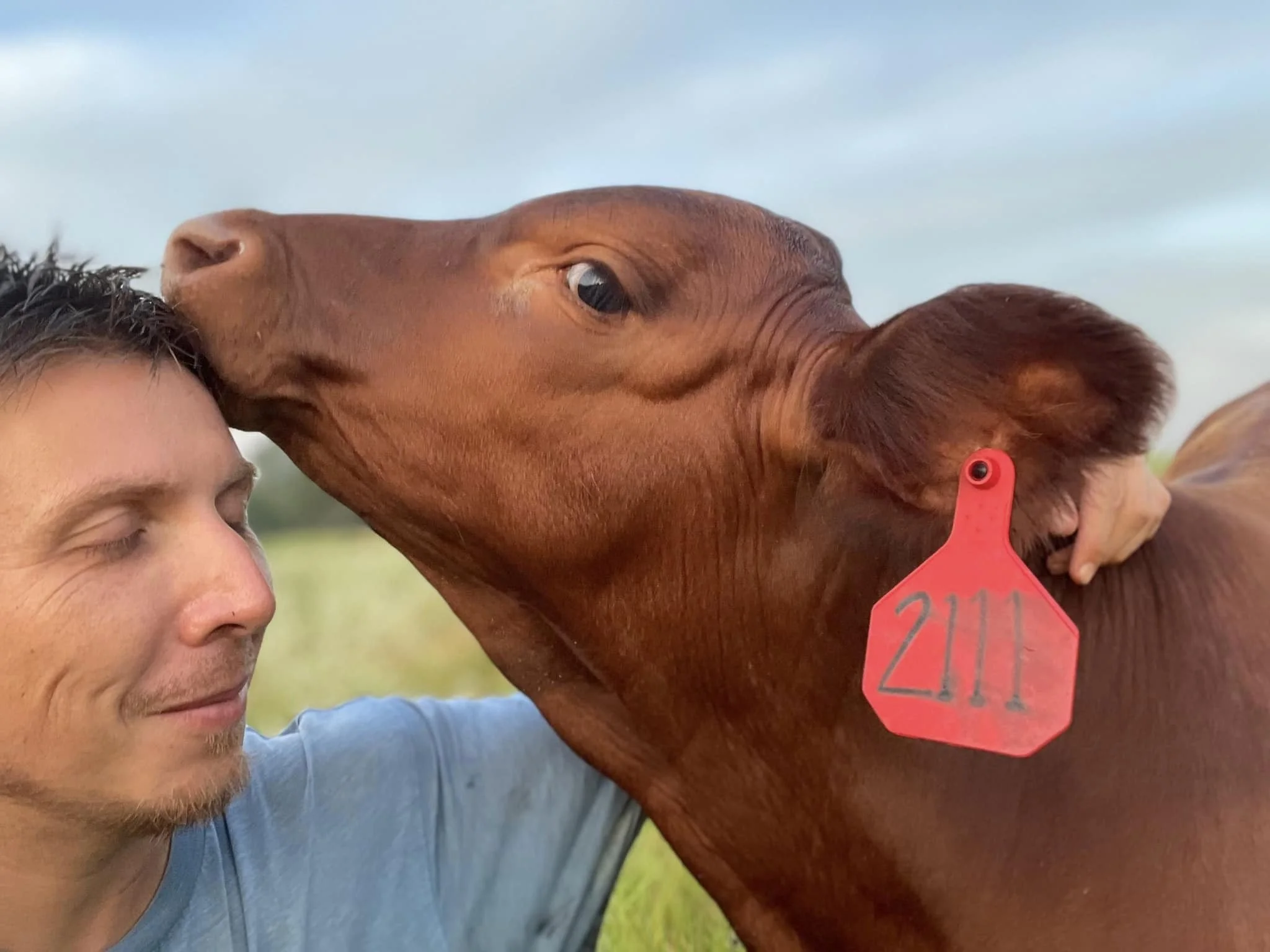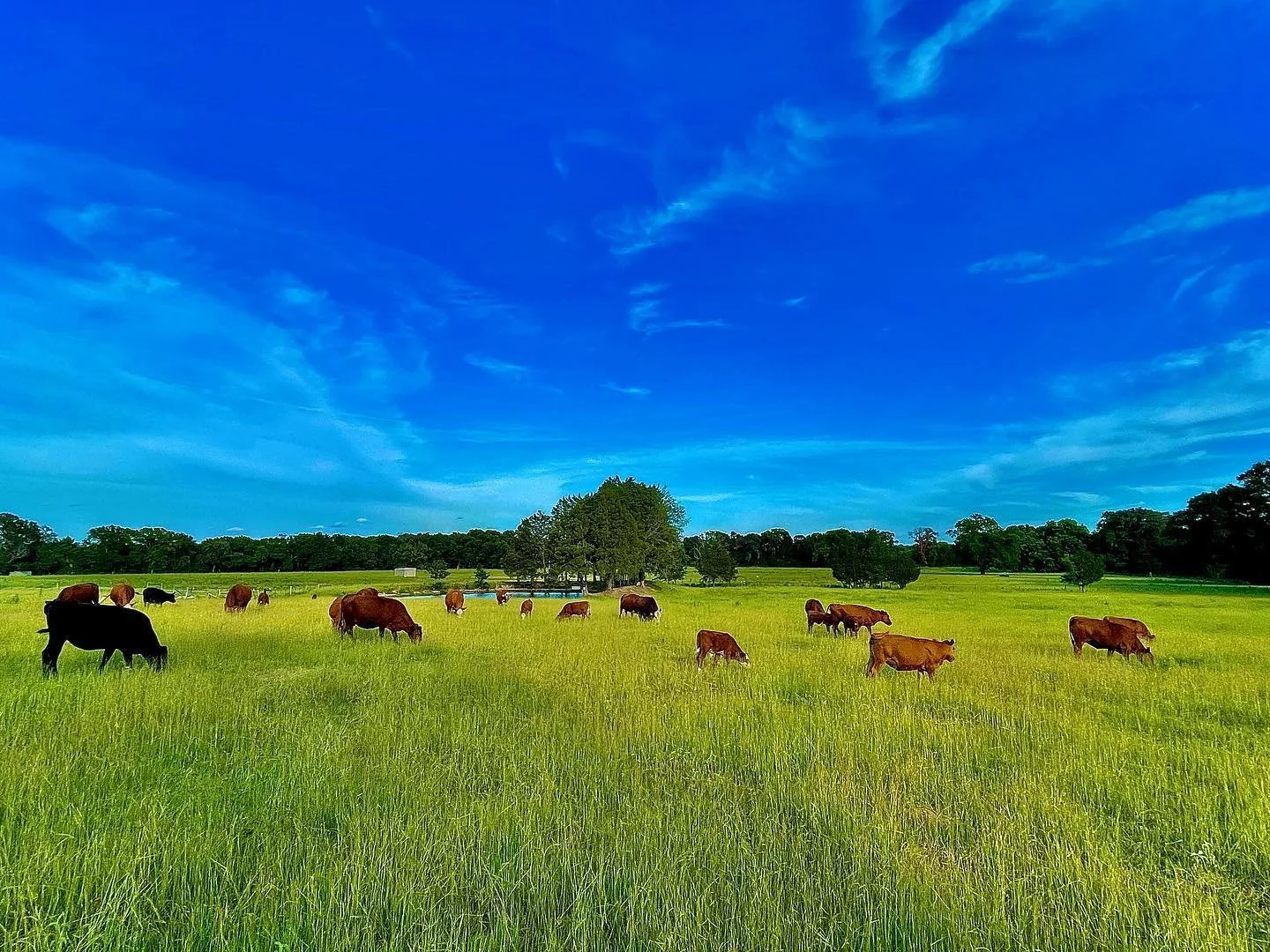A Practice of Sustainability One Cow at a Time
Discover > Business Spotlight > A Practice of Sustainability One Cow at a Time
Foster Farms comes from a tradition of food production and continues this legacy by working with the land rather than exploiting it. Regenerative agriculture is first and foremost when it comes to their cattle-raising operations where they focus mainly on soil health while building up good genetics for their cattle.
Foster Farms Owner James Foster talks about what his cattle-raising farm is all about, ‘We’re stewards of the land. It’s under our watch for however long we have on this Earth.’ This respect for both the environment and the animals is what makes Foster Farms one of the cattle farms in the Lone Star State that has great potential.
This perspective when it comes to food production is woven into both their farming operations and practices from the ground up. ‘I just started focusing on soil health through our regenerative agriculture practices, implemented grazing programs, and as well as planting schedules,’ Foster elaborated.
A Tradition of Food Production
The practice of farming runs deep for James because he grew up around the food farming industry by belonging to a family of Texan farmers. But despite coming from three generations of Texan producers, a life of farming was not originally part of James’ plans. ‘I was the black sheep and went into the world of corporate finance. Big city living and everything…and once I got there I realized, this is terrible, I don’t want to do this,’ Foster recalled as his major turning point that eventually led him to establish Foster Farms.
Foster Farms was first established as a small project of sorts for James while in rehabilitation for his back injury. Coming home to his family farm, he found the value of being connected with nature and family through farming. ‘I broke my back and had to take six months to recover … and when I came back to the farm that’s when I realized that this is where I’m supposed to be,’ Foster said when talking about how he saw a lot of potential in raising cattle.
Nowadays, Foster’s family tradition continues with James and his daughter since he brings her around the farm when they're working with the animals. ‘We’re out there every day with the animals…every other day she’ll mix up mineral water for the cows that’s a sort of brine mixture to keep them healthy… and when we’re pouring water, we’re putting good energy into it,’ James said when talking about the importance of family and overall good energy when raising cattle at their farm.
‘I just want to leave it better than we found it. And so just by taking a little bit of extra time observing what's around us, we can, we can improve upon what we have so much,’ James said when emphasizing how important it is for him, through Foster Farms, to have a positive impact on the environment.
Fostering Good Agricultural Practices
On paper, regenerative agriculture is farming practices that basically synergize with the land but, upon practicing it, James recalls how he first started out, ‘It’s a very romantic dance, and apparently I have to left feet because Mother Nature is stepping on my toes. I’m trying to get more in rhythm with her … there’s never a day that’s gonna be exactly as it was yesterday.’
Focusing on South Poll Cattle, Foster Farms prioritizes good genetics by building up cattle that are attuned to the Texas environment. ‘We’re really focusing on the beef side of operations right now … we’ve brought in outside genetics for the herd that was specifically purchased based on all the DNA testing, background checking, and traceability,’ James discussed when highlighting the importance of building up good cattle genetics. This is coupled by rotationally grazing their livestock on non-GMO grazing sources that are free from any chemicals or pesticides. ‘So, like, in spring when the grass is growing faster, we’ll move them three to four times a day so that they’re always staying on the move,’ James said when citing his rotational grazing schedule for springtime.
And by keeping a close eye on pasturing his cattle on their family farm, James talks about his efforts in data collection to keep a systematic record of certain trends that may prove beneficial to his operations. ‘I monitor and track how much urine, saliva, and manure comes out …. and is going to the ground so we can track everything as far as data to see what it tells us in the future,’ James said.
Good Energy, Great Quality
Foster Farms strives to produce some of the best responsibly raised meats in the Lone Star State, if not, the world. To achieve this, James Foster is heavy at work to provide the best possible conditions for their cattle and takes his craft for cattle-raising one meticulous step at a time.
‘I’m truly trying to wrap my head around everything to get the bigger picture and see how we can do better for the animals. Every time you rush a cow through the shoe, its meat gets a little bit tougher. I prefer tender steaks so I’m gonna be as cool and gentle with our cows as possible,’ Jack said.
Key to his note-worthy efforts in cattle farming through regenerative agriculture is the healthy feed source for his livestock. This allows a natural diet for his South Poll Cattle that is important in bolstering their overall health through proper nutrition.
‘We’re moving them [cattle] often so that they're always [feeding] on new grass and it creates competition within the herd … so everyone gets to work to eat as much as they possibly can. It’s good that it keeps them focused [on grazing],’ James added when elaborating on how his herd of cattle has grown accustomed to his grazing practices.
Regenerating the Environment as a Community
This balance of give and take between food producers and nature is picking up traction in the Lone Star State and Foster Farms is one of the perfect examples of this back-to-nature approach in food production. Their inspired drive to provide for the animals in the best possible conditions while also providing for the community around them has had them making waves in Groesbeck, Texas.
‘Foster Farms works with local schools to donate beef and we’re trying to get the local community into more healthy eating because we’re not much help to the community if I’m always selling directly to the consumers. I don’t really wanna be doing this just to have it leave the community,’ James said when pointing out how Foster Farms is making a positive impact on the city of Groesbeck.
A family-oriented farm, the sense of togetherness that Foster Farms contributes to Groesbeck is ever-increasing as they move through season after season of success - proving that sustainability, conservation, and animal welfare can be put into practice in the cattle industry.






